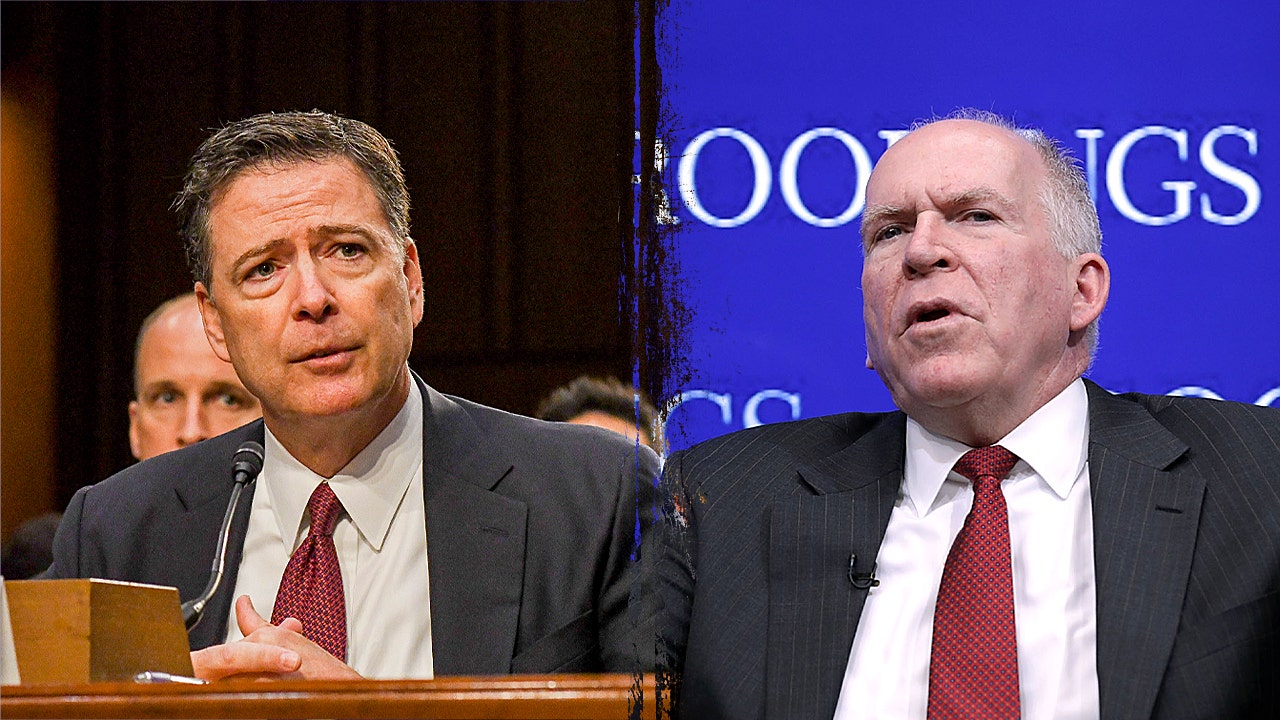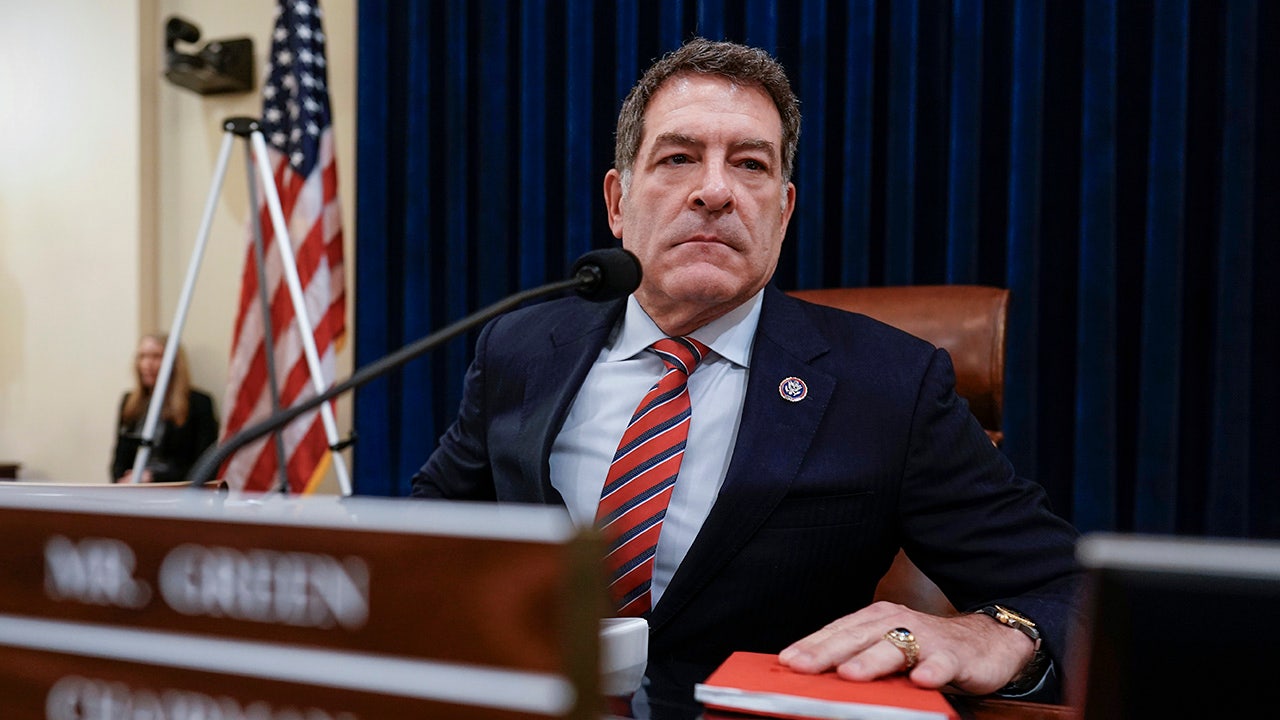The Department of Government Efficiency, or DOGE, recently gained high-level access to a database that controls government payments and loans to farmers and ranchers across the U.S.
Christian Blaza for NPR
hide caption
toggle caption
Christian Blaza for NPR
A staffer from the Department of Government Efficiency, or DOGE, recently got high-level access to view and change the contents of a payments system that controls tens of billions of dollars in government payments and loans to farmers and ranchers across the United States, according to internal access logs reviewed by NPR.
“When we talk about farm loan application records, there is no more personal information anywhere than in that database,” Scott Marlow, a former senior official in the U.S. Department of Agriculture, told NPR. “The farmer’s entire financial life and the life of their kids and their family, every time they’ve missed a payment, every time they’ve had a hard time, every time they’ve gotten in financial trouble … it’s there.”
With DOGE’s initial de facto leader, Elon Musk, engaged in an on-again, off-again feud with the president and no longer a constant presence in the White House, some of DOGE’s work has faded from view. But DOGE very much continues in Musk’s absence. In some cases, including at the USDA, the team’s access appears to have only deepened in recent months. Indeed, sources across government agencies who spoke to NPR say the impacts of DOGE’s plans and cuts have only just begun to play out.
DOGE at USDA
A source working for the USDA provided evidence of DOGE’s high-level access to the payments system called the National Payment Service. The access is a highly privileged level of permissions that the USDA employee says no other individual at the agency has and goes against normal access protocols. With that access, DOGE can view and modify data entries inside the system, giving them a view into sensitive personal information and the power to outright cancel loans.
It’s unclear whether staffers previously employed by DOGE are now full-time employees at USDA. Another USDA employee who requested anonymity fearing retribution said that the group is now internally referred to as the Efficiency Team, or the “E team.”
The move is in line with an early command by Secretary of Agriculture Brooke Rollins to give DOGE “full access and transparency,” though it may run counter to the agency’s long-standing policies around data protection and privacy. DOGE’s near unfettered access to sensitive data at other agencies like the Treasury Department and the Social Security Administration continues to be challenged in court due to privacy, security and legal concerns.
Secretary of Agriculture Brooke Rollins testifies before the Senate Appropriations Committee on May 6.
Kevin Dietsch/Getty Images
hide caption
toggle caption
Kevin Dietsch/Getty Images
The news of DOGE’s access and scope of potential use of farmers’ personal and economic data comes at a time when the United States’ agricultural producers face multiple financial challenges, including concerns over President Trump’s tariffs, rising production costs and climate-related disasters.
The National Payment Service system is housed at the Farm Service Agency (FSA) — a part of the USDA primarily tasked with keeping American farmers and ranchers afloat with programs like disaster relief, conservation grants and loans.
Many across the political spectrum, including USDA insiders, acknowledge that the Farm Service Agency systems are complex and archaic and that some of its systems are in need of reform. But they say making changes would require a massive bureaucratic and political effort led by experts with intimate knowledge of USDA’s programs and technology. Making changes quickly and haphazardly could lead to disruption of services to agriculture producers, which could be crippling, especially to small, family-owned farms.
Those disruptions, along with potential violations of privacy, might provoke outrage from constituents in rural areas — many of whom make up an important part of Trump’s political base.
NPR spoke to nine sources, including current USDA employees, former FSA officials, farm advocacy representatives and staffers on Capitol Hill who expressed concerns about DOGE’s access to sensitive data on farmers and ranchers.
Given the complexities of USDA’s programs, the myriad challenges facing farmers and the lack of oversight over DOGE’s activities, it may be hard to unravel what the direct impacts of DOGE’s activities are for years to come.
“Putting aside the serious privacy concerns, we’ve also seen what happens when DOGE gets its hands on federal assistance programs,” said Sen. Ron Wyden, a Democrat from Oregon who frequently works on agricultural issues. “Funding gets cut off altogether with no warning or it comes in months too late. Letting DOGE staff — who have zero expertise in [agriculture] — call the shots on who gets a financial lifeline is an outright attack on rural America,” he concluded in a statement provided to NPR.
The White House, DOGE, USDA and FSA did not respond to a request for comment.
Sensitive data at the Farm Service Agency
There’s a fair amount of publicly available information about the farms and ranches that receive government subsidies. It’s unclear why DOGE might need access to additional information.
Christian Blaza for NPR
hide caption
toggle caption
Christian Blaza for NPR
In early April, Jordan Wick, a former software engineer for the self-driving car company Waymo who has been identified in the media and court documents as a DOGE staffer, got high-level access to the National Payment Service system, the USDA staffer told NPR, sharing access logs as evidence. The source requested anonymity because they were not authorized to speak to the press and feared retaliation from the Trump administration.
That level of access would allow Wick to both view and modify all the data entries inside the system, which tracks payments and information about loans for farmers, ranchers and agricultural producers across the United States. He could outright cancel payments or deny loans. Those payments include various different government subsidies, ranging from emergency or disaster assistance after extreme weather events, to incentives for conservation practices or participating in one of FSA’s many other programs. FSA has 51 separate state offices and over 2,000 county offices.
There’s a fair amount of publicly available information about the farms and ranches that receive government subsidies, published on the FSA’s website and tracked by state by advocacy organizations like the Environmental Working Group. Local FSA administrators gather a lot of data about efficiency, profits and productivity in their regions.
It’s unclear why DOGE might need access to additional information.
But the data housed inside the National Payment Service system is almost certainly more detailed and sensitive than what is available publicly, particularly when it comes to private personal and financial data required to apply for an FSA loan.
“Basically, what’s in the [National Payment Service system] is everything,” said Marlow, who served as the deputy FSA administrator for farm programs under President Joe Biden. “I cannot understate the emphasis and the seriousness with which USDA had historically taken the handling of private information.”
Farmers are already wary of sharing information with the government, according to the farmers and advocates interviewed by NPR. “Farmers tend to be more skeptical about sharing information and data,” shared one farm advocacy expert who declined to speak on the record to protect the farmers their organization represents as well as ongoing efforts to secure funds from USDA. If farmers can’t trust that their most sensitive information isn’t being shared with outside parties, there’s even less incentive to fully cooperate with government research like the five-year agricultural census conducted by USDA, the expert said.
In addition to sensitive personal and financial information tied to loans, the dataset may also include information that could be used to target people based on their race or immigration status. That could include demographic details about farmers and ranchers who applied for financial assistance after experiencing discrimination, a well-documented, decades-long problem that has led to a number of high profile lawsuits against USDA. There may also be some information about farms and ranches who employ seasonal workers under temporary immigration status.
A person walks with an umbrella as rain falls on the Department of Agriculture building in Washington, D.C., on April 11.
Kayla Bartkowski/Getty Images
hide caption
toggle caption
Kayla Bartkowski/Getty Images
Meanwhile, the payments system could expose business secrets or sensitive information about producers’ outside contracts.
“Imagine if we had access to Domino’s or PepsiCo’s business plan and loan information,” Vanessa García Polanco, the government relations director of the National Young Farmers’ Coalition, told NPR. “That’s a lot of information.” García Polanco added that her organization is the most concerned about the Trump administration potentially abusing demographic information in a way that could harm small farms owned and operated by farmers of color.
It’s unclear what DOGE is doing with the data it now has access to and how its employees are protecting it from theft.
NPR spoke to a whistleblower in April who shared evidence that someone may have removed sensitive data about federal labor investigations while DOGE was supposed to be on site at the National Labor Relations Board, just hours before someone with an IP address in Russia tried to log on to the internal government systems. If outside parties got access to sensitive data about U.S. agriculture, they could take advantage of that data to better understand U.S. food security and areas of vulnerability, or further consolidate agricultural businesses and land ownership.
“USDA has a lot of data that people should be very concerned about protecting for a lot of different reasons,” said one current USDA employee who requested anonymity due to ongoing fear of retaliation. “Farmers’ financial and production data should be protected at all costs, for privacy reasons and because of competition. If you got access to disaster payments, you would be able to layer a lot of data and arrive at a lot of valuable conclusions about productivity and U.S. farmland, futures markets, and commodity prices. You can hedge a lot of bets and make a lot of money if you know what’s happening with U.S. agriculture.”
If DOGE were to combine that sensitive data with other sources of government information that it has sought access to, such as Internal Revenue Service and Social Security records, it could create an incredibly detailed dossier of farmers’ and ranchers’ lives, along with their networks and the people they employ, sell to and contract with.
“If [the Biden] administration had said, we’re going to share all your information with somebody that has access to everything across the federal government, it would probably have resulted in people with pitchforks and torches outside my office,” said Zach Ducheneaux, former administrator of the FSA and a rancher from South Dakota.
Changing the data
If farmers don’t think they’ll receive loans or payments they were counting on, it could disrupt entire growing seasons.
Christian Blaza for NPR
hide caption
toggle caption
Christian Blaza for NPR
For the agricultural community, what’s perhaps even more concerning than DOGE’s unfettered access to sensitive data is the capacity to change it or even deny and cancel payments.
The White House already appears to be heavily scrutinizing loans and payments to agricultural producers, further delaying meticulously planned agricultural work and provoking outrage from some Democratic lawmakers.
On April 29, a memo went out to USDA staffers notifying them that DOGE employees would be reviewing all farm loans and loan guarantees above $500,000, as well as any agricultural loans to “formal entities” ranging from corporations to small groups of individuals. USDA’s loan officers already go through multiple years of training and the funds provided to farmers and ranchers across the country are authorized by Congress. NPR was provided a copy of that memo by another USDA official who requested anonymity because they said USDA staffers have been threatened with severe consequences for speaking to the media.
According to the USDA staffer who shared evidence of DOGE’s access to the system, Wick’s activities are not monitored or logged in a way that would allow others to detect unusual activity.
“If someone is able to go into the system and change the file itself, it’s going to be very difficult to identify the impacts …. farmers are going to know they’re not getting paid,” explained Scott Marlow, but they might not know why or what went wrong “unless the farmer was very aggressive about holding on to a hard copy of their file,” he said.
Marlow and others have been urging farmers and ranchers they’re working with to keep a close eye on their records, and keep hard copies of their files, to identify any problems or changes and be able to challenge them.
There are some changes that might already be underway.
For one, according to the USDA staffer who shared evidence of DOGE’s growing access to the agency, there was a recent internal request made to identify and correct information about all loans disbursed to recipients whose birthdate is listed as “1900” within FSA’s payment system. DOGE staffers did similar searches on Social Security databases to try and deny people benefits, asserting they had found evidence of fraud or proof that someone was “deceased” and still receiving payments, though very little evidence has surfaced for this kind of fraud.
Farmers have to fill out complex paperwork that makes its way through a series of agencies — starting at the local level and transiting through the IRS before a payment or loan is ultimately issued. That increases the chances of typos or paperwork errors, like incorrect birth data, which in turn could now lead to the loans being rejected.
In late May, over 200 loan recipients had their date of birth data voided, the USDA source explained, meaning that their loan accounts with FSA will likely be cancelled.
“Either they are trying to fix bad data…or they are stopping loans for people who did not have proper birth records or had some kind of error,” the source continued.
Other changes made to loan terms or subsidiary payments might not take immediate effect for farmers and ranchers, as some payments are made seasonally.
But some producers are already struggling thanks to other Trump administration moves and delays. And because of the complexities of how some FSA programs are run, they might not even know they were supposed to get government assistance.
If farmers don’t think they’ll receive loans or payments they were counting on, it could disrupt entire growing seasons.
If a farmer is delayed planting their crops by “even a day,” said Ducheneaux, the former FSA administrator, “that [could’ve] been the one good day to get the crops in,” he said. “And now you get a week and a half of rain. You’re 10 growing days behind. We’re behind the curve that actually impacts outcomes in the future. It’s why these timely decisions are so critical.”
Farmers are still reeling from the effects of disasters from years past.
“I met last week with a farmer who came into town who said, if we don’t get assistance from the 2023 and 2024 disasters, I’m gone and all the guys in my area are gone. We’re done,” said Marlow. “They shared that they were having to make some very difficult decisions. So it was a very real and very immediate situation.”
Further disruption to FSA payments and loans will only make things worse for farmers and ranchers during a challenging time, says Ducheaneux, the former FSA administrator.
“I’m a child of the farm financial crisis during the 1980s as a result of poorly carried out federal policy. My family nearly lost the ranch,” he recalled. “We’ve all heard Secretary Rollins often say we are going to be ‘farmer first,’ … but the actions have to align with what you’re saying,” he said. “Otherwise, it creates further uncertainty.”
NPR’s Michele Keleman and Ximena Bustillo contributed reporting.
Are you a farmer or rancher impacted by recent changes at USDA? Do you have information or evidence to share about DOGE’s access to data inside the federal government? Reach out to the author, Jenna McLaughlin, through encrypted communications on Signal at jennamclaughlin.54.































